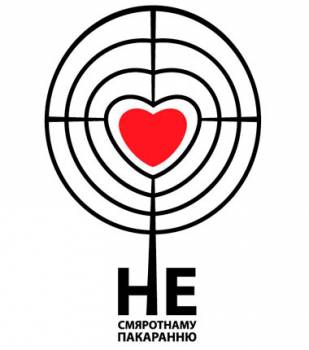Today is the World Day against the Death Penalty
The idea to mark the Day against the Death
Penalty belongs to the World Coalition Against the Death Penalty, which
includes about 40 human rights organizations, including “Amnesty
International”, as well as bar associations, unions and local governments from
all over the world. In September 2007 the Board of Ministers of the European
Council decided to mark the European Day against the Death Penalty within the
framework of the World Day, as far as Europe is a space which has been
factually free from the death penalty since 1997.
At present Belarus is the only European country without
membership in the Council of Europe. The main obstacle to its admission to this
organ is the ongoing use of the capital punishment.
In 1993 the Belarusian Parliament received a special guest status at the
Parliamentary Assembly of the Council of Europe, but was deprived of it 1996
after a referendum which legalized the death penalty.
In June 2009 PACE adopted a resolution to return the special guest status to
Belarus with the condition of the abolition of the death penalty or
introduction of a moratorium on it. However, new executions were performed in
Belarus the following year, after which PACE officially recommended its members
not to visit the country. In 2012,
in the aftermath of the shooting of Dzmitry Kanavalau
and Uladzislau Kavaliou (charged with a terrorist act in the Minsk metro), the
EU Secretary General Torbjorn Yagland stated that the use of the death penalty
in Belarus prevents it from having any status within the framework of the
Council of Europe.
According to information of “Amnesty International” and the “Human Rights
Defenders against the Death Penalty” campaign, over 400 people were punished
with death during the last 20 years in Belarus.
As said to BelaPAN by the campaign coordinator Andrei Paluda, the situation is
aggravated by the non-responsiveness of the state agencies.
The present practice of execution in Belarus is a separate issue. “The
relatives are informed neither about the time and place of the execution, nor
about the place of burial, the graph “the reason of death” in the left
certificate is left blank. All their inquiries are answered in a standard way:
“The time of the execution and the time of burial are not disclosed”, stated
Mr. Paluda.
The calls of the human rights defenders to introduce a death penalty moratorium
or abolish it altogether are answered with references to the results of the
1996 referendum, at which the majority of the Belarusian citizens supported the
keeping of this kind of punishment.
“However, 16 years have passed since that time”, emphasizes Andrei Paluda. “I
especially “like” the answer of the Belarusian authorities that the abolition
of the death penalty is a question of time. They don't tell what time, though –
will it be a month, a year, or some decades?”
On 10 October Minsk activists of “Human Rights Defenders against the Death
Penalty” will present the film "Departed on Sentence”, dedicated to the issue of the
death penalty. “Usually this phrase “left according to the verdict”Away on the
verdict” is used to inform the relatives about the execution when they bring
parcels to prison. The same is written in the prisoner's case,” said the human
rights defender.


